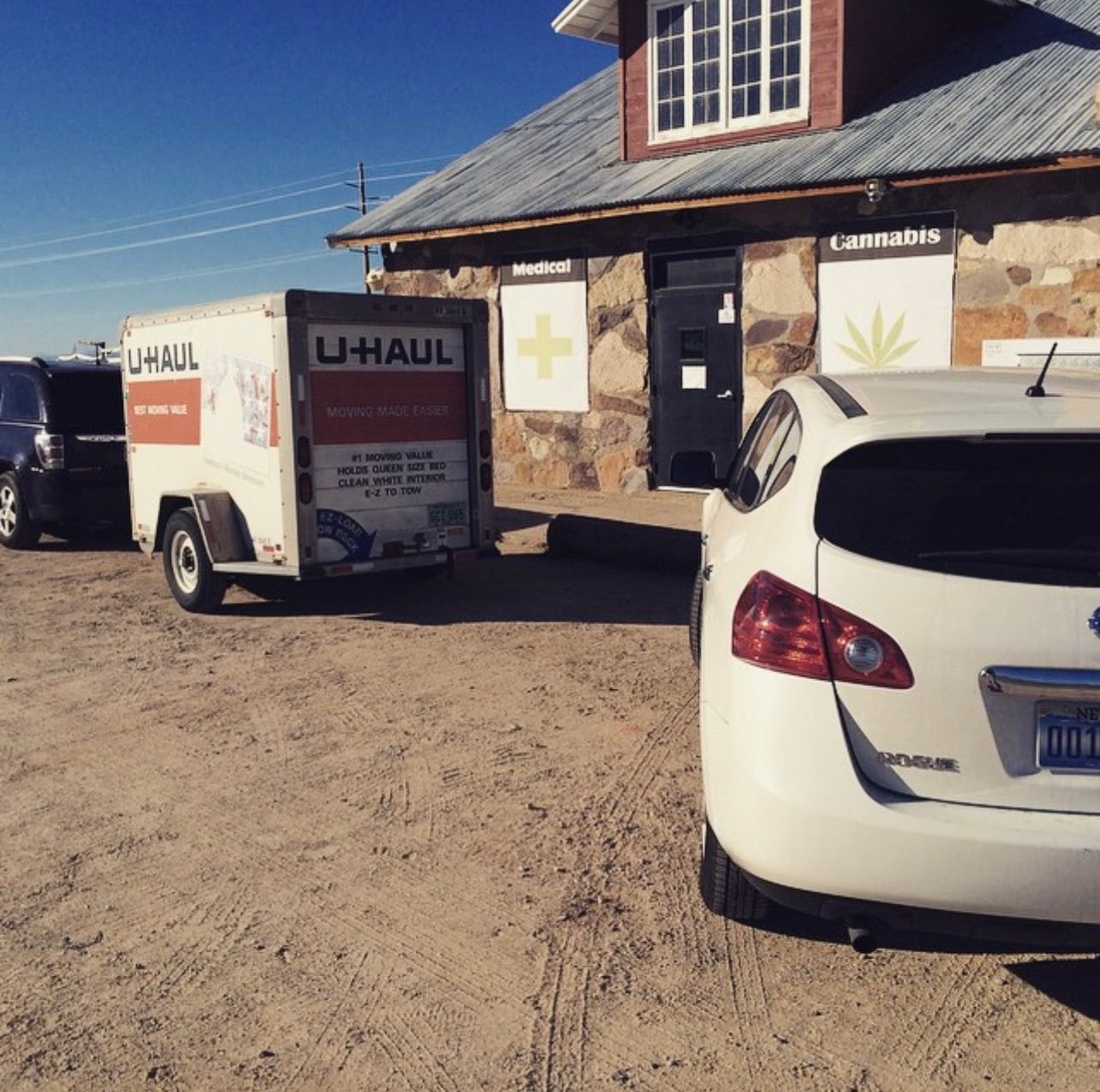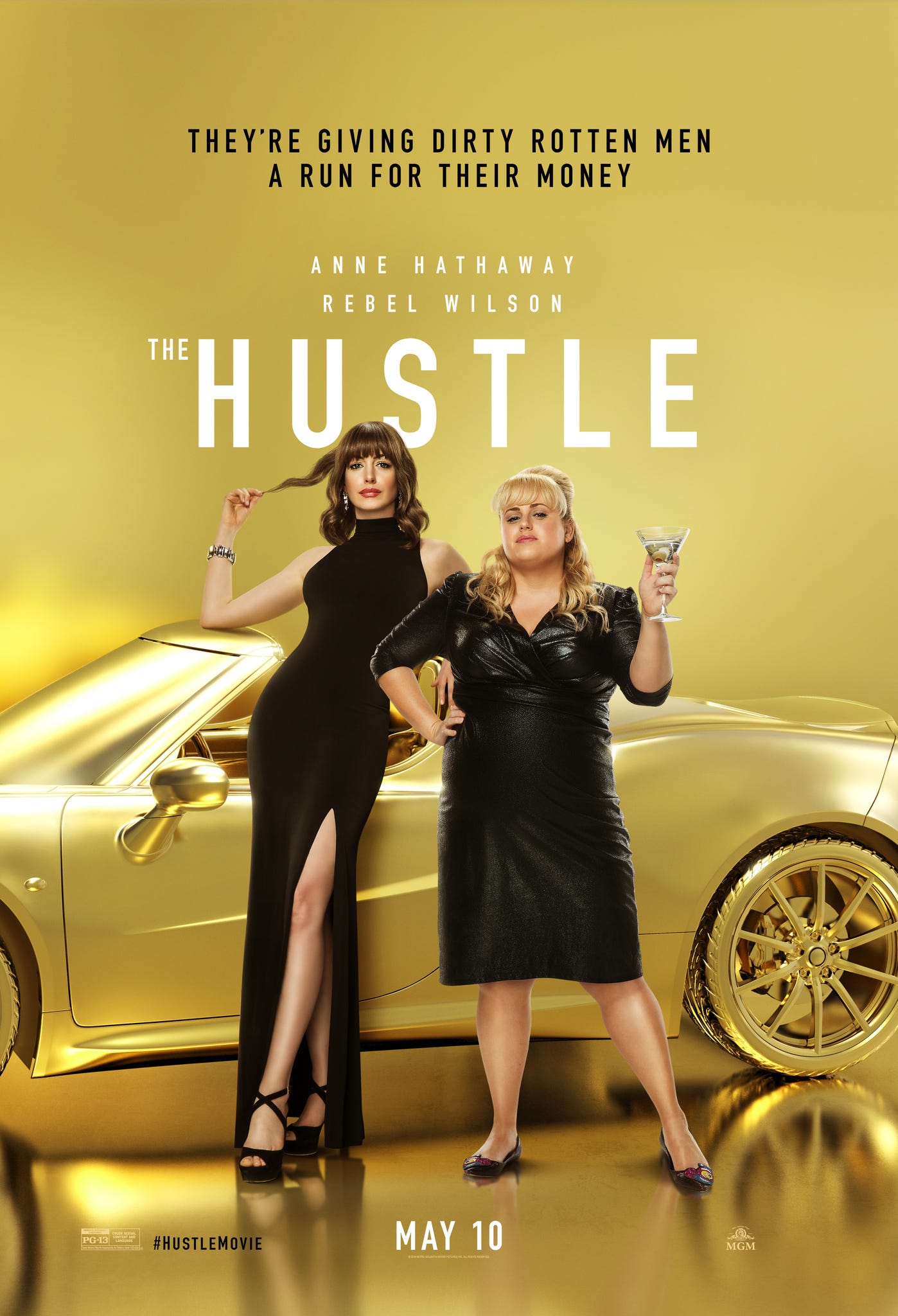Screenwriting With a View #27
“Catch and Kill” — A Screenwriter’s Realest Introduction to Hollywood, Part Two
P
If you read Part 1, you know where we left off.
A gigolo action-comedy. A solid idea wrapped in a mediocre draft. Contests, cold calls, and cross-country road trips. A big-time meeting with a producer who was way too enthusiastic.
That was the moment everything changed.
Not in the “I made it” way people fantasize about. In the way you look back on years later and say, “Yeah, I saw that coming.”
The producer was fired up. He wanted to move fast.
He brought in people. We talked logistics. Then he brought up the idea of an option — but what he really wanted was to buy the script outright.
At the time, I wasn’t a union writer ( still not). I didn’t know a ton about how these deals worked. But I knew one thing: the number he offered was way more than I expected.
But who doesn’t want more money, even if you’ve saved a bunch?
Low six figures. Sent directly to me.
I remember thinking, “This doesn’t make sense.”
If you’re this excited about something, why bury it in a four-year option? Why offer that kind of money for a non-union writer’s spec comedy?
But, again, who doesn’t want more money, even if you’ve saved a bunch?
At the time, I had stacked some wins and wasn’t in a bad spot financially at all. But I also knew how unpredictable this game was. A six-figure offer for a script I thought was mid-tier? I wasn’t going to say no to that.

So I took the deal.
He didn’t make an announcement.
Didn’t put it on Deadline or any entertainment rag.
Didn’t do anything public with it at all.
It just disappeared.
So did he. I didn’t care because the check cleared.
Now here’s where it gets real.
One of the other producers I had met early in that round of meetings had also shown interest in the script. He had wanted to option it and had even been honest with me about what he thought it needed.
We stayed in touch. And in 2020, over drinks, he finally told me what had been going on.
That overly enthusiastic producer?
He was already working on a remake of Dirty Rotten Scoundrels starring Anne Hathaway.
A movie that would eventually become The Hustle, released in 2019.
And I Do, the gigolo comedy I wrote?
It was too close for comfort.
Too close in tone, structure, and premise — just flipped.
That producer didn’t buy my script to make it.
He bought it to kill it.
And he paid out of pocket to make sure it would never compete with the film he already had in preproduction. Which unbeknownst to me, admit that my contest wins and cold calls were drawing attention, even if it wasn’t overt. If I had any idea, I’m probably would’ve asked for more money.
That’s called a catch and kill.
In publishing and journalism, that’s when a company buys rights to a story just to bury it. In film, it happens more than you think. Sometimes studios or producers acquire a script that’s similar to something they’re already making. They don’t want overlap. So they pay you off, take control, and make sure it never sees the light of day.
I didn’t know that at the time.
But I knew something didn’t sit right.
And eventually, the truth made its way back to me. Now don’t get me wrong. I’m not upset about it. Truth be told that money at least, in some part, is being used to build our house out here in Las Vegas. It paid for quite a few things prior to that.
Now fast-forward a few years.
I’m living in Colorado after a promotion at my day job, trying to make my way back to Las Vegas. We’re in the middle of a move. Somewhere between Denver and the Kansas border, I get a call.
I don’t answer. They leave a voicemail.
It’s a lawyer, a friend of my old entertainment attorney. He reached out to her in the hopes of contacting me. She gave him my number.
He says, “Kevin, I’m handling a bankruptcy case for a Hollywood producer. Your name came up on a list of assets. Call me back.”
I thought “list of assets with my name “. Then it hit me he brought the script, printed it out essentially to read it and never even change the cover page with my name on it
I finally call when we land in Colorado.
Turns out, that same overly enthusiastic producer is now bankrupt.
And one of the assets being auctioned off? My old script.
I Do.
It had never been made.
Never developed.
Never even touched.
The listed asking price?
Five hundred dollars.
Let that sink in.
I was paid low six figures to sell the script, only to buy it back for $500.
Because it never went anywhere.
Because it was only bought to disappear.
I didn’t hesitate.
I PayPaled the money that day.
A year later, after we finally got to Vegas, that lawyer came through Las Vegas, and I took him out on the strip just to say thank you.
Now I own I Do again.
And I’m considering retooling it, shaping it into something stronger, maybe even putting it into development myself. I’ve come a long way since that first draft. And this industry has come full circle more than once.

So what’s the lesson?
Screenwriting is unpredictable.
There are moments where things go bad, worse, then unexpectedly better. But what determines whether you survive this industry isn’t just your writing. It’s your instincts.
When something feels off, it probably is.
Even if you don’t yet have the experience to explain why.
That was my first “catch and kill.”
I’ve had two other situations since then that didn’t end as well.
And there are countless writers who’ve been through something similar and never recovered from it.
Martin Scorsese, fictitiously,losing Jonestown in The Studio? That kind of stuff really happens.
The difference is, he’s Martin Scorsese. He’ll be fine.
Most writers are not Martin Scorsese. Both in talent and power.
So take this story and file it away.
Not because it’ll happen to you exactly like this, but because some version of it might.
And when it does, I want you to be ready.




I’ve been through another version of this, where a script of mine that got optioned got killed by the producer’s agent because she didn’t want them associated with the material in the script. It was a painful experience, because the agent shut down multiple opportunities for me. And the other black writers I spoke to at the time were all like, “Don’t make waves. This shit happens.” And it felt like slave shit. Like, “Don’t make massa mad. Or he gon’ whip all’a us.” Ugh.